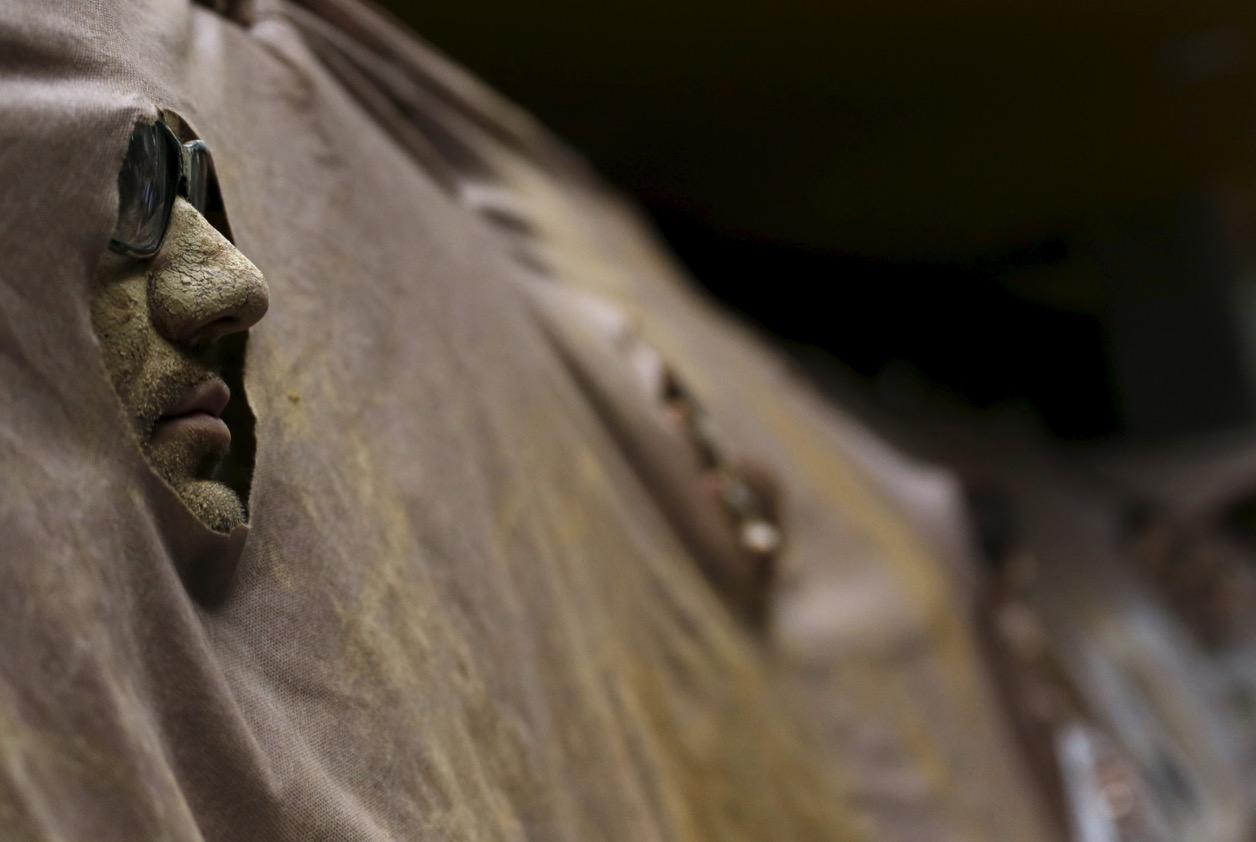Environmental activists perform during a protest in front of the headquarters of a Brazilian mining company in Rio de Janeiro, Brazil on Nov. 16.
At least 185 activists and indigenous people fighting environmental pillaging were murdered in 2015, the watchdog group Global Witness said on Monday.
The grisly toll is the largest recorded — nearly 60 percent more than in 2014 — since the NGO began tracking such violence worldwide in 2002, and is probably higher because many killings go unreported, it said in its annual report.
Brazil and the Philippines together accounted for nearly a third of the total, followed by Colombia, Peru, Nicaragua and the Democratic Republic of Congo.
In Honduras, a country with one of the highest murder rates in the world, the brutal killing of indigenous activist Berta Cáceres shocked environmental activists worldwide.
Cáceres was shot dead in her home after campaigning against a Honduran hydroelectric dam.
Guardian reporter Nina Lakhani says a former Honduran soldier, First Sergeant Rodrigo Cruz, has told her Cáceres had been on a hit list given to a US-trained Honduran military police unit.
More than 40 murders in the Global Witness report were related to mining operations, according to the report.
Disputes over agribusiness, logging and dam projects also led to numerous killings.
"Communities that take a stand are increasingly finding themselves in the firing line of companies' private security, state forces and a thriving market for contract killers," Global Witness campaign leader Billy Kyte said in a statement.
"Governments must urgently intervene to stop this spiraling violence."
Indigenous people — nearly 40 percent of the victims — are frequent targets of land and resource grabs, often in collusion with corrupt local officials, he said.
The area on Mindanao in the Philippines inhabited by the Lumad people, for example, saw 25 killings last year alone, the highest death rate of any region monitored.
The Lumad homeland is rich in coal, nickel and gold.
In a particularly brazen attack, the father and grandfather of Filipino activist Michelle Campos were murdered in public for their stand against mining operations, Global Witness reported.
"We know the murderers — they are still walking free in our community," Campos, who escaped harm, said in a statement.
In Brazil, the NGO said, the fight to save the Amazon is "increasingly a fight against criminal gangs who terrorize local populations at the behest of timber companies and the officials they have corrupted."
Thousands of unauthorized logging camps are scattered across Brazil's Amazon basin, where precious hardwoods — mahogany, ebony, teak — are cut and prepared for export.
A 2014 report from Chatham House estimates that 80 percent of timber coming from Brazil is illicit, accounting for a quarter of illegal wood on the global market.
"The murders that are going unpunished in remote mining villages or deep within rainforests are fueled by the choices consumers are making on the other side of the world," Kyte said.
The top markets for precious woods are the United States, China and the European Union.
In early March this year, two masked men gunned down indigenous activist Berta Cáceres, recipient of a prestigious international environmental prize for fighting a dam project in Honduras.
Last week, some 500 indigenous Lenca people held a protest in Honduran capital Tegucigalpa to demand an international probe into the murder.
One of five people arrested for Cáceres' murder is a high-ranking employee of Desarrollos Energeticos (DESA), an electricity company involved in the construction of the hydro-electric dam against which she campaigned.
AFP's Marlowe Hood reported from Paris.
The World's Joyce Hackel contributed to this report.
Every day, reporters and producers at The World are hard at work bringing you human-centered news from across the globe. But we can’t do it without you. We need your support to ensure we can continue this work for another year.
Make a gift today, and you’ll help us unlock a matching gift of $67,000!
